Audi A7 VS Dacia Spring
Audi A7
The Audi A7 effortlessly blends elegance with dynamic performance, making it a standout in the luxury coupe segment. Its sleek silhouette and innovative technology create a driving experience that is both exhilarating and sophisticated. With a focus on comfort and advanced features, the A7 caters to those who seek both style and substance in their automotive choice.
more informationDacia Spring
The Dacia Spring stands out as an affordable and environmentally friendly option in the electric vehicle market, combining practicality with a compact design ideal for urban settings. Its minimalist interior, while basic, provides all the essential features needed for a comfortable drive, reflecting its cost-effective approach. The vehicle's performance suits city driving, making it an appealing choice for those seeking an entry-level electric car.
more information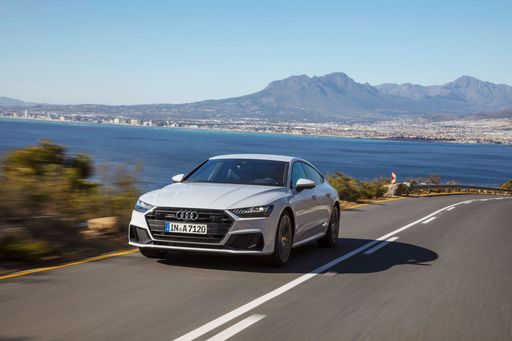 @ audi-mediacenter.com
@ audi-mediacenter.com
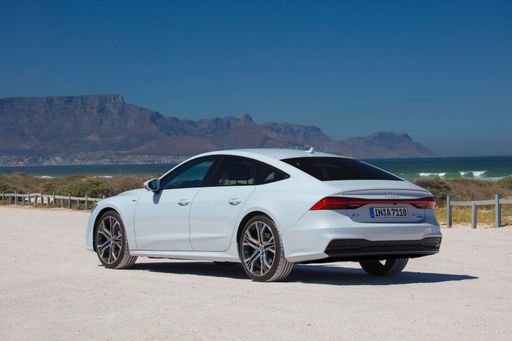 @ audi-mediacenter.com
@ audi-mediacenter.com
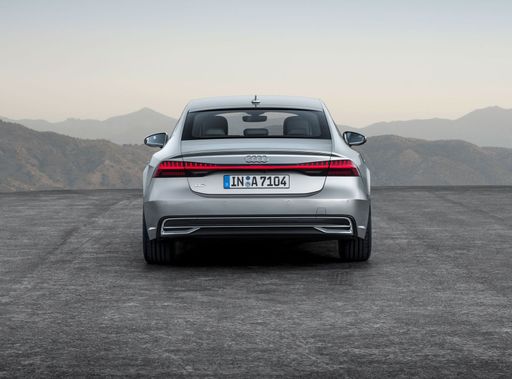 @ audi-mediacenter.com
@ audi-mediacenter.com
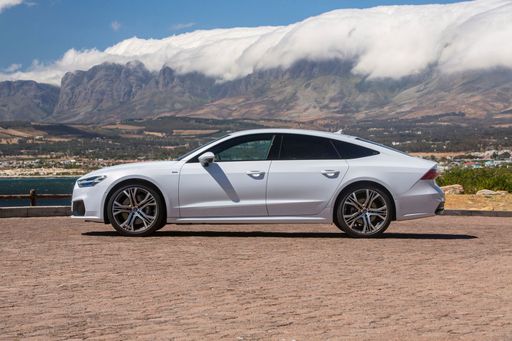 @ audi-mediacenter.com
@ audi-mediacenter.com
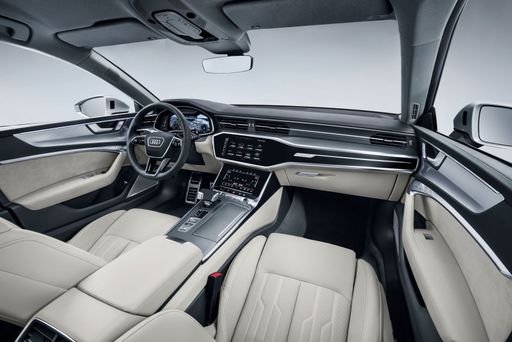 @ audi-mediacenter.com
@ audi-mediacenter.com
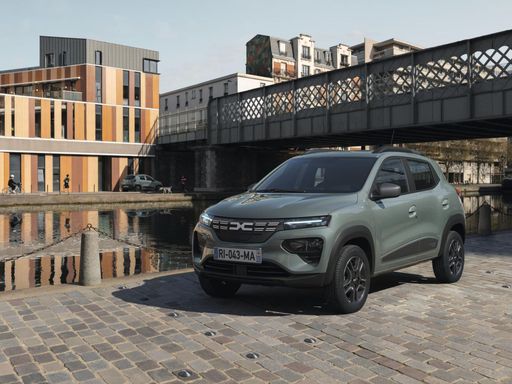 @ dacia-presse.de
@ dacia-presse.de
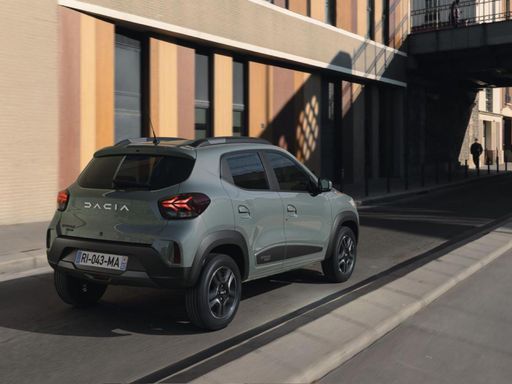 @ dacia-presse.de
@ dacia-presse.de
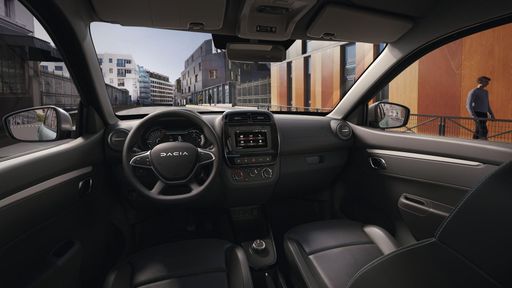 @ dacia-presse.de
@ dacia-presse.de
Costs and Consumption |
|
|---|---|
|
Price
about 59300 - 127100
$
|
Price
about 15600 - 18400
$
|
|
Consumption L/100km
1.2 - 12.2
L
|
Consumption L/100km
-
|
|
Consumption kWh/100km
-
|
Consumption kWh/100km
13.2 - 14.1
kWh
|
|
Electric Range
67 - 68
km
|
Electric Range
225 - 228
km
|
|
Battery Capacity
14.4
kWh
|
Battery Capacity
26.8
kWh
|
|
co2
28 - 276
g/km
|
co2
0
g/km
|
|
Fuel tank capacity
52 - 73
L
|
Fuel tank capacity
-
|
Dimensions and Body |
|
|
Body Type
Hatchback
|
Body Type
SUV
|
|
Seats
4
|
Seats
4
|
|
Doors
5
|
Doors
5
|
|
Curb weight
1770 - 2150
kg
|
Curb weight
1030 - 1050
kg
|
|
Trunk capacity
380 - 535
L
|
Trunk capacity
308
L
|
|
Length
4969 - 5009
mm
|
Length
3701
mm
|
|
Width
1908 - 1950
mm
|
Width
1583
mm
|
|
Height
1422 - 1424
mm
|
Height
1519
mm
|
|
Payload
510 - 600
kg
|
Payload
265 - 285
kg
|
Engine and Performance |
|
|
Engine Type
Diesel MHEV, Petrol MHEV, Plugin Hybrid
|
Engine Type
Electric
|
|
Transmission
Automatic
|
Transmission
Automatic
|
|
Transmission Detail
Automat. Schaltgetriebe (Doppelkupplung), Automatic Gearbox
|
Transmission Detail
Reduction Gearbox
|
|
Drive Type
All-Wheel Drive, Front-Wheel Drive
|
Drive Type
Front-Wheel Drive
|
|
Power HP
204 - 630
HP
|
Power HP
44 - 65
HP
|
|
Acceleration 0-100km/h
3.4 - 8.1
s
|
Acceleration 0-100km/h
13.7 - 19.1
s
|
|
Max Speed
245 - 280
km/h
|
Max Speed
125
km/h
|
|
Torque
370 - 850
Nm
|
Torque
113 - 125
Nm
|
|
Number of Cylinders
4 - 8
|
Number of Cylinders
-
|
|
Power kW
150 - 463
kW
|
Power kW
33 - 48
kW
|
|
Engine capacity
1968 - 3996
cm3
|
Engine capacity
-
|
|
Top speed
245 - 280
km/h
|
Top speed
125
km/h
|
General |
|
|
Model Year
2023 - 2024
|
Model Year
2024
|
|
CO2 Efficiency Class
E, F, B, G
|
CO2 Efficiency Class
A
|
|
Brand
Audi
|
Brand
Dacia
|
Audi A7
The Audi A7 Sportback epitomises luxury and performance, seamlessly blending cutting-edge technology with exquisite design. This versatile model boasts a range of powertrains, including advanced mild-hybrid systems, delivering exceptional efficiency without compromising on capability. In this article, we delve into the technical specifications and innovative features that make the A7 stand out in the competitive luxury segment.
Elegantes Design trifft auf praktische Funktionalität
With its sleek silhouette and a coupe-like design, the Audi A7 makes a bold statement on the road. Measuring between 4,969 mm and 5,009 mm in length, the A7 offers an impressive presence while maintaining a sporty profile. The rear hatchback design adds practicality, providing a boot space ranging from 380 to 535 litres, accommodating everything from everyday shopping to weekend getaways.
Leistungsstarke Antriebe: Effizienz und Dynamik
The A7 is powered by a versatile lineup of engines, covering a wide spectrum of preferences. Offering petrol and diesel mild-hybrid options, as well as plug-in hybrid variants, drivers can choose between a range of outputs, from 204 PS to a staggering 630 PS in the RS7 performance model. This flexibility ensures that whether you prefer efficiency or burst-the-throttle performance, there’s an A7 for you.
Innovative Mild-Hybrid-Technologie
A standout feature of the A7 is its mild-hybrid technology, which enhances efficiency and reduces emissions. The integrated 48V electrical system assists the engine during acceleration, optimising fuel consumption and delivering a smoother driving experience. Depending on the model, fuel consumption figures range from 1.2 to 12.2 L/100km, reinforcing Audi's commitment to sustainable luxury.
Fahrvergnügen und Kontrolle mit quattro® Allradantrieb
The A7 is equipped with Audi's legendary quattro® all-wheel-drive system, ensuring superior grip and stability in diverse driving conditions. This system, combined with a choice between automatic and dual-clutch transmissions, delivers an engaging and responsive driving experience. With acceleration times from 0 to 100 km/h clocking in as little as 3.4 seconds in the high-performance RS7, the A7 is as exhilarating as it is refined.
Technologie und Vernetzung: Audi virtual cockpit
The Audi A7 is very much a car of the future, featuring the state-of-the-art Audi virtual cockpit. This digital display seamlessly integrates various vehicle functions and navigation into a single screen, ensuring that information is readily accessible without distracting from the driving experience. Furthermore, the MMI touch response system provides intuitive control over entertainment, navigation, and vehicle settings with just a touch of a finger.
Sicherheit und Assistenzsysteme auf höchstem Niveau
Safety is paramount in the design of the A7, which comes equipped with an array of advanced driver assistance systems. Features such as adaptive cruise control, lane-keeping assist, and emergency braking ensure that drivers can enjoy peace of mind on every journey. These technologies not only enhance safety but also contribute to a more relaxed driving experience.
Fazit: Die perfekte Symbiose aus Luxus und Leistung
The Audi A7 Sportback is a remarkable blend of style, performance, and technology. Its diverse powertrain options, innovative mild-hybrid systems, and luxurious attention to detail make it a standout choice for discerning drivers. Whether you're navigating city streets or cruising on the open road, the A7 promises an unparalleled driving experience.
Dacia Spring
The Revolution of Affordable Electric Mobility: The Dacia Spring
The automotive world has witnessed remarkable advancements in electric vehicles (EVs), with the Dacia Spring emerging as a noteworthy contender in the affordable segment. Combining efficiency, affordability, and practicality, the Spring offers an intriguing prospect for eco-conscious individuals and city dwellers alike.
Powertrain and Performance: A Look Under the Hood
The Dacia Spring is equipped with an electric motor that delivers between 44 to 65 PS, translating into a versatile driving experience tailored to urban landscapes. It operates on a front-wheel-drive system, ensuring a familiar and manageable handling experience.
Dacia Spring's electric engine is paired with an automatic transmission, utilising a reduction gearbox. This setup allows for smooth acceleration and a top speed of 125 km/h, ensuring that everyday driving scenarios are handled with ease.
Efficiency and Range: Eco-Friendly without Compromise
Efficiency is a cornerstone of the Dacia Spring's design, boasting an energy consumption of just 13.2 to 14.1 kWh per 100 km. When fully charged, its 26.8 kWh battery offers a respectable range of 225 to 228 km, making it ideal for daily commutes and short trips.
Furthermore, the Spring takes pride in its commendable CO2-efficiency class A, emphasising its commitment to reducing environmental footprint with a zero-emission profile.
Design and Practicality: Compact yet Comprehensive
Lying in the SUV category, the Dacia Spring is compact with dimensions of 3701 mm in length and 1583 mm in width, making it a perfect match for urban environments where space is at a premium. Despite its modest size, it provides a generous boot space of 308 litres, ensuring practicality isn’t sacrificed.
Comfort and Interior: For the Everyday Journey
The Dacia Spring comfortably seats up to four passengers. The cabin offers a minimalist yet functional design, available in multiple trim lines including Essential, Expression, and Extreme, allowing customers to choose according to their taste and requirement.
With its ergonomic layout and simplicity, the interior is crafted to enhance the driving experience by focusing on essential needs, avoiding unnecessary distractions.
Affordability and Accessibility: Breaking Barrier
The Dacia Spring stands out in the electric vehicle market due to its affordability, with prices ranging from 16,900 to 19,900 €. This ensures that environmentally friendly transportation is accessible to a broader audience.
Additionally, the Spring allows for cost-effective maintenance and operational expenses, offering monthly running costs between 570 to 599 € and cost per km between 22.8 to 24 cents, making it an economical choice in the long run.
Final Thoughts: The Future of Urban Mobility
In summary, the Dacia Spring serves as a testament to how electric vehicles can be both affordable and practical, without compromising on essential features. Whether it is for the eco-conscious urbanite or those looking for a cost-effective daily driver, the Spring is positioned as a viable solution for navigating the future of urban mobility.
